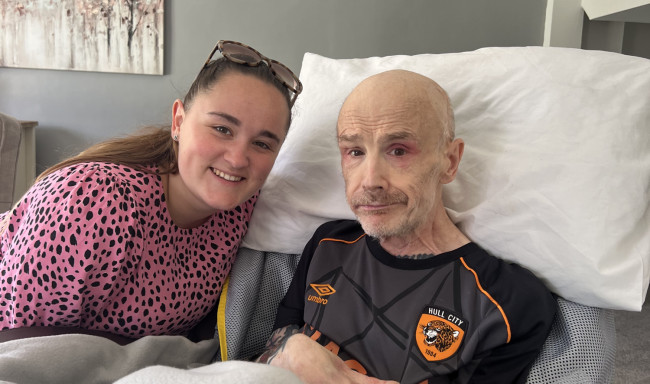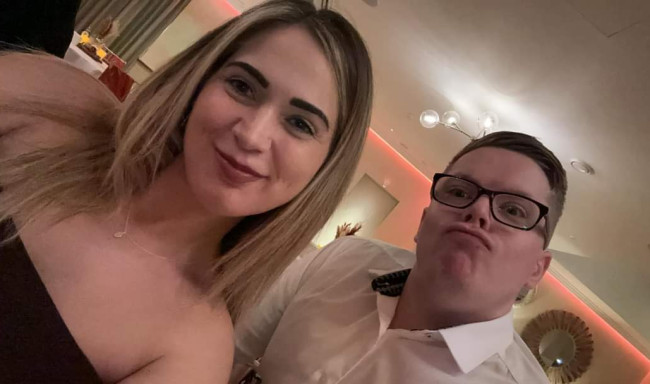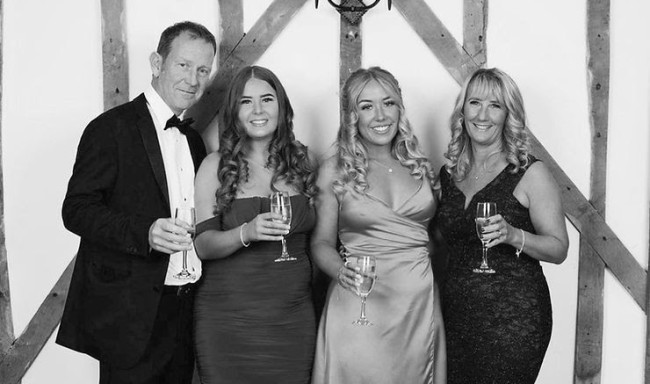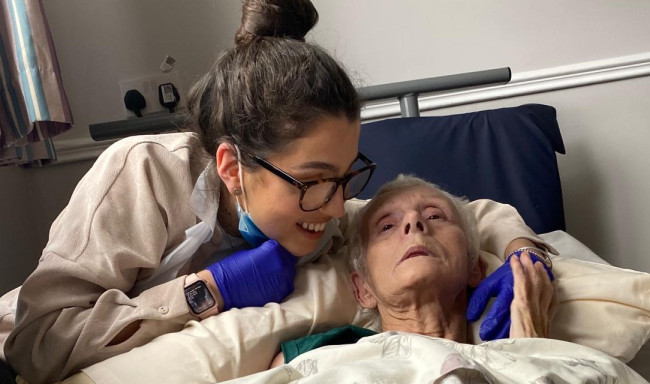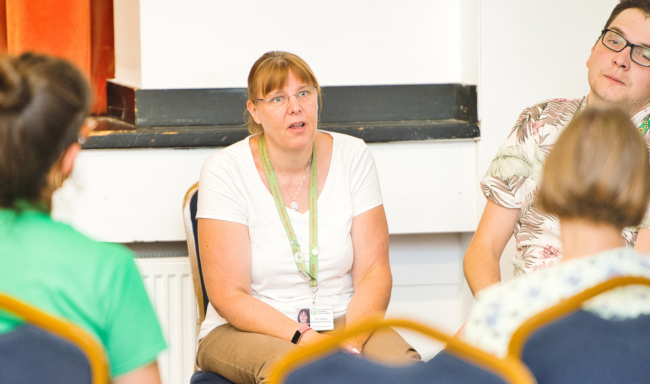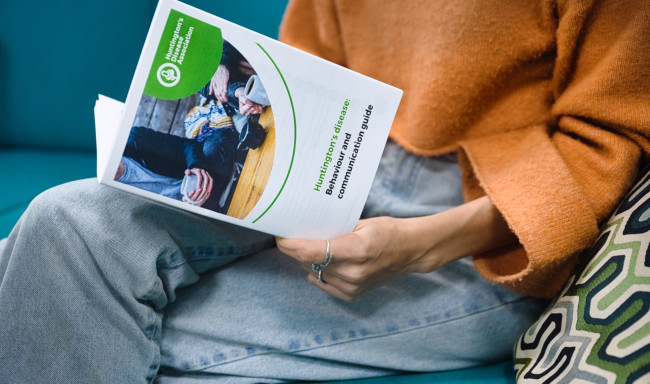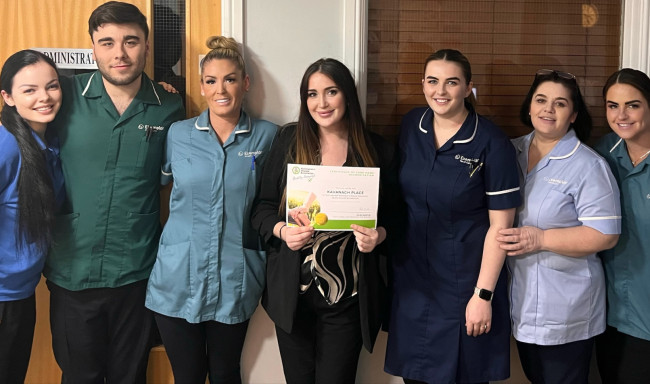Roy Stovell, a remarkable individual living with Huntington's disease has dedicated his life to supporting others in the Huntington's disease community in Wiltshire.
His inspiring journey of resilience, strength, and the power of community support has made a profound impact on the lives of many. Today, we announce Roy's decision to step down as the Chair of the Wiltshire Branch of the Huntington's Disease Association, opening up an opportunity for someone to continue his legacy.
After years of dedicated service, Roy has made the difficult decision to step down as Chair. At nearly 77 years old, he acknowledges the toll that Huntington's disease has taken on his energy levels and overall health. Roy shared:
"I am getting too old, I am nearly 77. I started showing symptoms around ten years ago now. Things are much more tiring for me and I do not have as much energy as I used to so felt it best to step down. My Huntinton's disease is also progressing and I sometimes have problems with my speech. Because of the nature of Huntington's, although I am in good health at the moment, I have no idea how quickly I will be unable to function properly."
Despite his decision, Roy remains committed to the cause. He and his wife, who serves as the branch's treasurer and temporary secretary, will continue attending meetings to be with their Huntington's disease friends.
After testing positive, Roy turned to the Huntington's Disease Association for support when his Specialist Adviser provided information and guided him to a local support group. Roy found solace among individuals who shared similar struggles. The support group became a lifeline, offering both emotional support and practical advice to navigate the challenges of living with Huntington's disease.
In 2016, Roy and the support group took a significant step forward as they established the official Wiltshire Huntington's Disease Association branch, expanding their reach and offering welfare grants to local individuals in need. As the branch's chair, Roy took immense pride in being there for struggling families, providing a friendly and welcoming presence along with a comforting cup of tea and a listening ear.
We spoke to Roy to find out a little bit more about him and his history with the branch.
When did you first find out about Huntington's disease?
"I had no idea about Huntington’s in the family until my sister was diagnosed. I had an Auntie Jess, who the family thought drank alcohol and was wobbly on her feet, things like that, and it transpired she had Huntington's disease. When my sister went into Bath hospital, we were asked whether there were any neurological conditions in the family, but I did not know there were then. I then contacted Auntie Kath who knew all the family history and we were then able to tell Bath hospital about Auntie Jess and where she had been treated in London. We assume there was an exchange of information which led them to Huntington’s disease. My mum died in 1982 but she always said that there was something ‘wrong’ with my sister, who used to sit and rock, cross and uncross her legs, and fidget. This was around the late 1970’s so before people knew much about Huntington’s disease.My dad must have carried the gene but he died when he was 61 and my uncle died when he was 50 both before Huntington’s ever showed itself. Whereas my auntie had shown what we now know as symptoms of Huntington’s chorea as it was then called when she was 50 years old or younger."
"The genetic test only became available in 1993 and I had my test around 1994. At the time I found out about Huntington’s disease in the family, my brother was not showing any signs of Huntington’s. He is older than me, and although I knew it was a genetic condition it did not really occur to me that it might affect me. It was only after my daughter got married and when she started thinking about having children that she then explored getting tested herself. She was told they would not test her without me being tested first, so the genetic nurse my daughter had seen, arranged for me to see a genetic counsellor in Oxford. Then I went through several months of genetic counselling to make sure I was prepared to take the test and receive the result. I got my results and it came back positive. I was then able to tell my daughter and she then went through the genetic counselling route too. She was negative which meant she was able to have children without risk of Huntington's disease. Our son has not wanted to know whether he has it or not, so has not had any counselling and is at 50% risk as it stands."
How did you first hear about the Huntington Disease Association and the local branch?
"I was worried about driving some time after my positive test result. I then contacted the Huntington's Disease Association and the specialist adviser for Dorset and Wiltshire gave me the information I needed. As I was not symptomatic, I did not need to inform the DVLA at that point. The adviser told me about the support group in my area. I’ll be honest, I wondered what I would discover there, bearing in mind how my sister was affected. I went by myself on the first occasion thinking if it wasn’t my thing then I would walk out but I was proved very wrong. I was met by a warm and friendly group of understanding people who have since become friends. Being around people who understood my condition made me feel really comfortable. After my first meeting, I brought my wife Arline along. At that time it was a support group run by another family member who had lost her husband to Huntington’s and had a symptomatic daughter."
When did you join the branch?
"When I joined it was a support group, which means that it was a regular get together for peer support. However, someone had done some very successful fundraising at a concert in Dorset and it was agreed we would receive half of the money. As a support group we could only hold £200 in our bank account, so we decided to start the branch in 2016. This means we have a chair, treasurer, secretary and hold regular meetings and AGMs. As a branch, we are able to offer small welfare grants to local people in need, at our discretion, which have been very useful in emergency situations. We also do a little bit of fundraising where we can."
What are you proud of achieving at the branch?
"Supporting local people both practically with welfare grants when they are in need and emotionally by being a friendly and welcoming face with tea and cake at the ready for struggling families! My wife [Arline] always makes a cake or two for the meetings."
What's next for you?
"I enjoy being in the garden most days and I can usually find something to do. My wife is treasurer and temporary secretary of the branch so we still attend the meetings to be with our friends. We also have a timeshare in Gran Canaria where we spend the winter which we love. I am also currently involved in an Huntington's disease trial, testing out a medication that can help with my chorea, described as jerky dance-like movements that are perhaps the most visible sign of Huntington’s disease. Now we just need someone to take the branch forward."
The Huntington's Disease Association expresses its deepest gratitude to Roy for his unwavering dedication and selflessness. His journey serves as a testament to the power of community support and the importance of raising awareness about Huntington's disease.
To learn more about Huntington's disease and the Wiltshire branch or if you are interested in stepping forward to be the new chair, visit our support near you page and contact Tiffany, the Specialist Adviser for Wiltshire.

